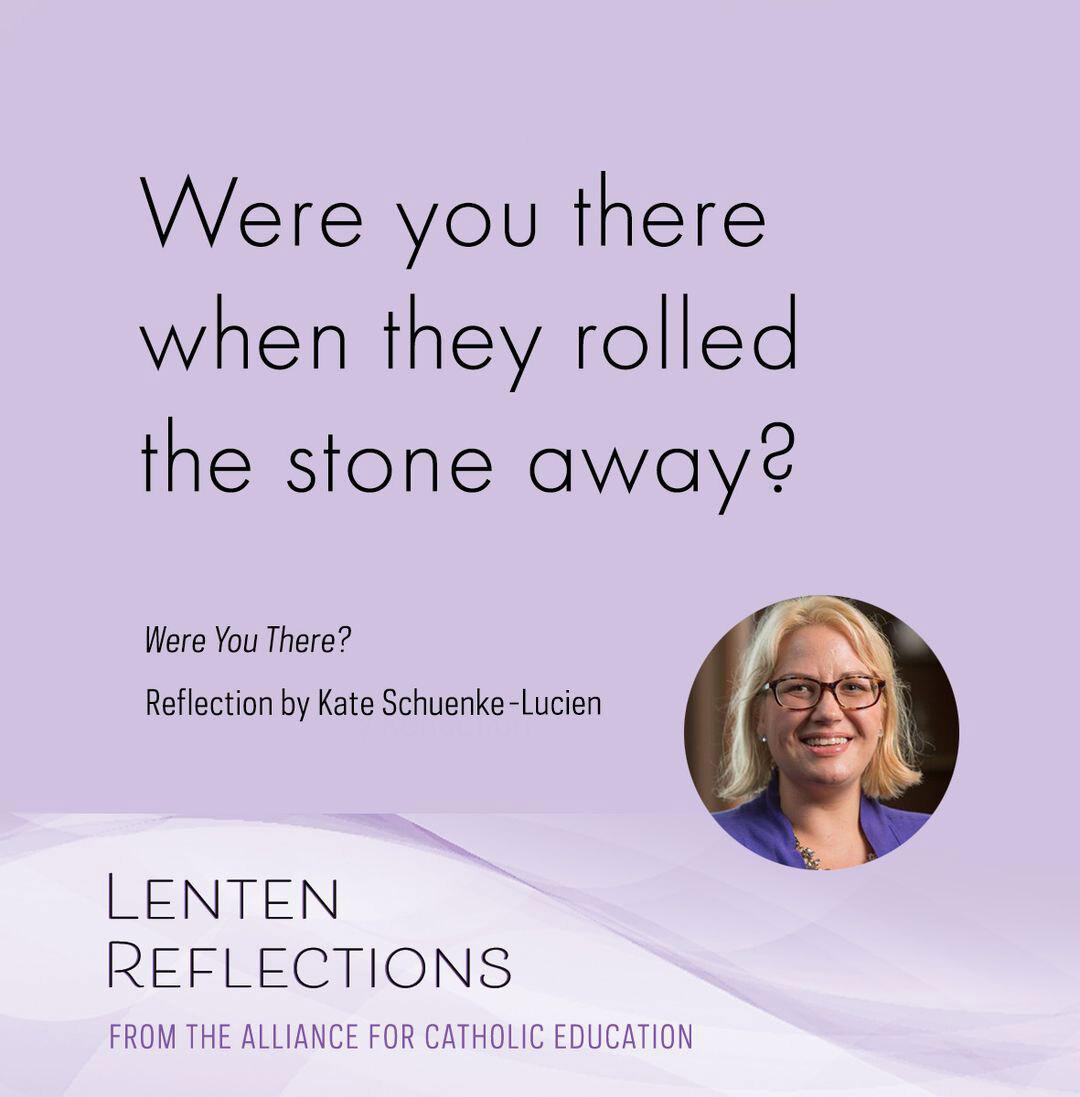Were You There verses 5 and 6
Were you there when they laid him in the tomb?
Were you there when they laid him in the tomb?
Oh! Sometimes it causes me to tremble, tremble, tremble.
Were you there when they laid him in the tomb?
Were you there when they rolled the stone away?
Were you there when they rolled the stone away?
Oh! Sometimes it causes me to tremble, tremble, tremble.
Were you there when they rolled the stone away?
"Were you there when they rolled the stone away?"
I grew up in church, so as a child I knew in a general sense who was at the tomb on Easter morning: a group of women who had come to prepare Jesus’ body for burial. However, the child version of me didn’t fully understand who these women were, what it meant to prepare a body for burial, and why the task fell to them.
When Jesus was crucified, a small band of women, including His mother, stayed with Him until the bitter end as He died. After the male disciples left, these women watched as His broken and disfigured body was removed from the Cross. They followed the man who took it and placed it in a tomb so they would know where to come the next day with spices to prepare Him for a proper burial.
The following morning, fighting deep sorrow and exhaustion, the women trudged off in the predawn darkness to tenderly care for his body. This was not a glamorous job. If it was, or if there was some glory to be had in it, I think the male disciples, who had just days earlier been arguing about who among the twelve of them was greatest and should sit at Jesus’ right hand, would have claimed it for themselves.
This group included Jesus’ aunt and several of His female followers. Like His mother, these women cared for and adored Jesus. Mary had done for Him all the physical caring work that falls to mothers – she gave birth, nursed Him through long sleepless nights, changed His soiled diapers, tended to scrapes and cuts, and held Him in her arms as He slept. The other women who knew Jesus had cooked for Him, watched Him perform miracles, marveled at His teachings, and had financially supported Him. In turn, Jesus had treated them with much greater respect and dignity than Jewish and secular law and customs afforded them in the first century. In the eyes of the religious leaders of the day, women were accorded the same status as slaves and children. In contrast to a culture that systematically and emphatically devalued women’s minds and bodies, Jesus spoke to women, encouraged them to sit and learn when He taught, touched them to heal them, and used them as central characters in His parables and teachings.
Given the context above, it now makes more sense to the adult version of me why these women were so faithful to Jesus and showed up to care for His body in death. They were prepared for their salty tears to mingle with the spices they would press into His open wounds, and for their work roughened hands to wrap tight strips of linen around his broken limbs as they held their breath to keep the stench of decay at bay. He was their son, nephew, and friend.
Maya Angelou said, “At the end of the day people won't remember what you said or did, they will remember how you made them feel.” I’m sure the women who came to the tomb that morning probably still remembered what Jesus had said and done, but the way He made them feel must have been the anchor of the deep and abiding love for Him that compelled them to come to the tomb that morning.
I have a visceral memory of a dear college professor and mentor of mine sitting next to me on a bus during a class field trip, asking me about how I was doing in the wake of my mother’s sudden death in a car accident the year before. As I started talking to him, I couldn’t stop the tears from rolling down my cheeks. I will never forget how he gave me his whole attention, every few minutes reaching out and gently wiping the tears from my face with his fingers as tears ran down his own cheeks. I had never before felt so fully seen and known. At that point in my life, I had not had the experience of an adult man beside my own father entering into my experience in such a direct, concrete way, unafraid to reach out and offer me a physical touch as an expression of how fully he was willing to be present with me in my pain.
I feel confident in speculating that my experience with this professor was just the barest whisper of an echo of how the women who loved Jesus felt in His presence when He ate with them, invited them to learn, wept with them, and touched them to heal them. I understand why they were there at the tomb that Easter morning, ready to pour all they had into caring for what was left of His body.
They weren’t there because they expected the miracle of the Resurrection. They were there when the stone was rolled away out of love for Jesus, who had first loved them.
 Alliance for Catholic Education
Alliance for Catholic Education
